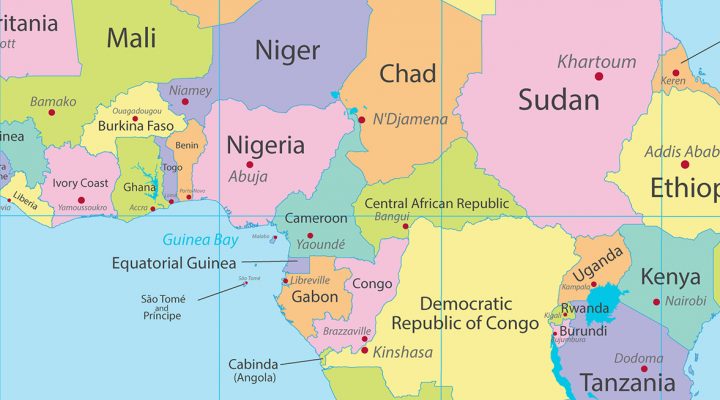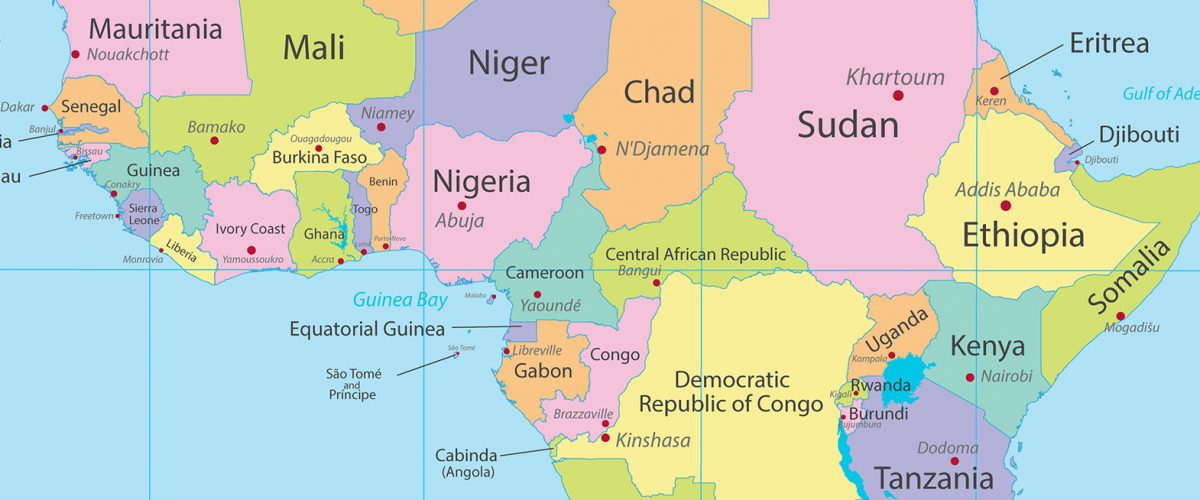As the LGBTQ community in Africa reacted to the strident new anti-homosexuality bill adopted in Uganda, attention quickly shifted to Kenya, where a similar bill with different nomenclature recently was tabled for consideration in Parliament.
On April 7, George Peter Kaluma, a member of Parliament in Kenya, informed the world via Twitter he had submitted a bill that seeks to criminalize LGBTQ activities in his country.
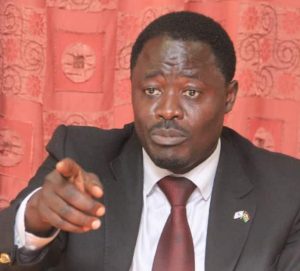
George Peter Kaluma (Source: Twitter)
“I’ve submitted the Family Protection Bill to @NAssemblyKE,” he wrote. “It criminalizes homosexuality, same-sex marriages and LGBTQ behavior; criminalizes promotion, recruitment, funding of homosexuality and LGBTQ behavior; bans sexual health and sexual health rights and education; bans Comprehensive Sexuality Education in pre-primary, primary and secondary schools education programs: the teaching of abortion, homosexuality, LGBTQ issues, masturbation to children” and “defines ‘sex’ as the biological state of being male or female observed and assigned at birth.”
Even before this tweet, Kaluma has been outspoken about LGBTQ issues.
The Family Protection Bill was presented two months after the Kenyan Supreme Court ruled LGBTQ groups are at liberty to form associations of their choice in the country.
Yet Kaluma’s bill appears to have the backing of many Kenyans. Like Uganda and most African countries, Kenya is a conservative society.
Justus Wanjala, a Kenyan journalist, told Baptist News Global many of his countrymen and women would rather discuss more pressing matters than LGBTQ issues: “Majority of the population does not tolerate and would not like it (LGBTQ) to be a topic of public discourse. They usually quip, and this is a common banter, ‘Why make a big agenda out of immoral acts of two consenting adults? Instead, focus should be on seeking solutions to the rapidly nose-diving economy.’ Many argue the country has too many crucial issues to address than the ‘awkward’ sexual preferences of (people) among the citizens.”
Asked what he thinks of the LGBTQ community in Kenya, Wanjala replied: “The LGBTQ community in Kenya is small but growing given that many people, (including) the youth are coming out to declare their status/orientation. It is also strong on organizing and advocacy backed by a rather strong section of the civil society and high-level (recognition) of civil rights by its members embedded in the 2010 constitution that is very strong, disallowing all forms of discrimination against people.”
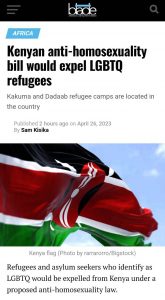 LGBTQ groups, he added, “do not have a strong influence given the lack of support in National Assembly, Senate and county Parliaments, but are supported by compact and strong, well-financed groups and a section of the civil society and boast of strong legal representation in courts. The constitution and the recent ruling by the apex court favors them too.”
LGBTQ groups, he added, “do not have a strong influence given the lack of support in National Assembly, Senate and county Parliaments, but are supported by compact and strong, well-financed groups and a section of the civil society and boast of strong legal representation in courts. The constitution and the recent ruling by the apex court favors them too.”
He perceives the Kenyan government only shows concern about LGBTQ activities when they become too conspicuous.
However, something is changing in Kenyan society, he added. “There is a heavy breakdown of the traditional society and erosion of the values of yesteryears. Although the Kenyan society comes out as rather religious with heavy influence of Catholic/Protestants/Pentecostal/indigenous Christian churches as well as Islamic/Hindu influences, it’s a society at crossroads with social norms influx thanks to the information super-highway that has enhanced globalization.”
Kaluma, however, sees a threat posed by the LGBTQ community in Kenya and believes it needs to be checked. For his advocacy, he has received both praise and criticism inside and outside the African continent.
Citizen Go is an advocacy group that claims to “promote life, family and liberty” but according to the Bureau of Investigative Journalism is “the main online outlet for an unlikely coalition of the U.S. Christian right, militant European Catholics, Russian Orthodox hardliners and even sanctioned oligarchs.” This coalition is working “in a concerted campaign to undermine reproductive and LGBTQ rights around the world.”
Thus Citizen Go endorses Kaluma’s move, explaining: “The Family Protection Bill … is a step in the right direction toward preserving the moral values and cultural identity of Kenya. The bill aims to ban homosexuality, same-sex marriages, and any activities related to LGBTQ, which is a positive move to protect the family structure in the country.”
 But Kaluma’s bill comes as bad news to the LGBTQ community in Kenya, which already had condemned the anti-homosexuality bill in nearby Uganda.
But Kaluma’s bill comes as bad news to the LGBTQ community in Kenya, which already had condemned the anti-homosexuality bill in nearby Uganda.
“We stand in solidarity with our LGBTQ counterparts in Uganda and affirm that love, identity and consensual relationships should never be criminalized,” one Kenyan group stated.
Even before the latest events some LGBTQ citizens in Kenya claimed they were being routinely targeted by “systematic violence and stigma.” One legal aid clinic said it has documented more than 3,000 cases in Kenya ranging from “blackmail and extortion to torture and murder.”
Violence against sexual and gender minorities in Kenya has escalated at an alarming rate, these groups report. According to one report, 53% of LGBTQ people in Kenya say they have been physically assaulted but nearly half that number have not reported their assaults.
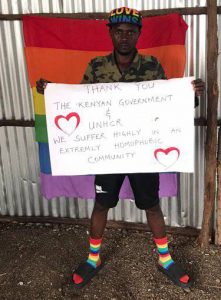
A photo message sent this spring from a refugee camp in Kenya.
Geoffrey Bhule, a gay human rights defender, told BNG he and some LGBTQ colleagues live at Kakuma Refugee Camp in northwestern Turkana County, Kenya. Life at the camp is far from ideal because they face discrimination there, he said, describing the situation as “grave.”
“Over the course of the past five years, I and other LGBTQ individuals in the camp have faced considerable hardships and hostilities from both the host community and fellow refugees,” he said. “We have been subjected to a range of abuses including physical violence, bullying and arson attacks on our homes. Despite numerous reports to local government, the United Nations High Commissioner for Refugees, and other relevant agencies, there is no adequate measures to ensure the safety and security of these vulnerable individuals. This lack of action only intensifies (our) traumatic experiences and exacerbates our feelings of depression, anxiety and low self-esteem.”
He added that “living in a community that continues to marginalize us based on our sexual orientation, (leaves us) in a constant state of fear and anxiety.”
Bhule appealed for urgent help, insisting the existing condition is unbearable.
“We hope our pleas for help are heard and immediate action is taken to secure our safety. The current circumstances necessitate relocation from the Kakuma Refugee Camp to a more accepting and secure environment where we can exercise our human rights freely and without fear,” he said.
BNG reached out to UNHCR about Bhule’s complaint.
Eujin Byun, UNHCR’s global spokesperson and senior communications officer, responded: “The security and well-being of refugees, including those with an LGBTQ profile, is our priority. LGBTIQ refugees can access various mechanisms to report protection or security incidents, with UNHCR and partner staff trained on the specific aspects of handling protection issues for persons with this profile. Refugees can access UNHCR’s country-wide toll-free 24-hour helpline, dedicated UNHCR protection email accounts in Nairobi, Dadaab and Kakuma, and partner-managed helplines and designated contacts.
“For safety reasons and to avoid drawing unwarranted attention, we have encouraged the integration of LGBTQ refugees within the broader refugee community and in a number of instances have facilitated their relocation to other parts of the camps to address protection concerns,” she added. “However, a small group has preferred to settle together in one specific area where UNHCR has increased the presence of community volunteers to help mitigate risks.”
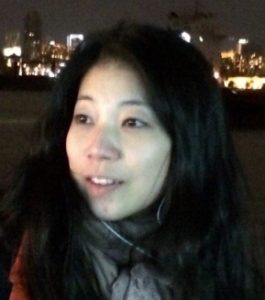
Eujin Byun
Through working with Kenya’s Department for Refugee Services and other partners, “we have noted a significant decline in the number of protection incidents reported by members of the LGBTQ community in recent months,” Byun said.
Asked what UNHCR thinks of the anti-homosexuality bill recently adopted in Uganda and the proposed Family Protection Bill currently before the Kenyan parliament, Byun said: “People should not face persecution on the basis of their sexual orientation, gender identity, gender expression, and/or sex characteristics. LGBTQ people are entitled to the same human rights as all other human beings and should be protected from discrimination, violence and all forms of abuse.”
It remains to be seen whether Kaluma’s bill will make it beyond the legislative chamber to President William Ruto’s desk.
According to a report by the BBC’s Evelyne Musambi, Ruto is Kenya’s “first evangelical Christian president” and holds strong views against gay rights.
The BBC reported: “In 2015, ahead of a visit by then-U.S. Secretary of State John Kerry, he told a congregation in Nairobi that ‘Kenya is a republic that worships God. There is no room for homosexuality in Kenya.’”
Anthony Akaeze is a Nigerian-born freelance journalist who lives in Houston. He covers Africa for BNG.
Related articles:
AWAB decries Uganda’s anti-gay law as ‘another step backward’
What happens when Tom Ascol finds Ted Cruz to be too liberal and quotes Leviticus 20:13?
Egged on by evangelical influence, Ugandan Parliament passes harsh new anti-gay bill
Ghana considers a new law punishing same-sex relations, and LGBTQ community fears reprisals

